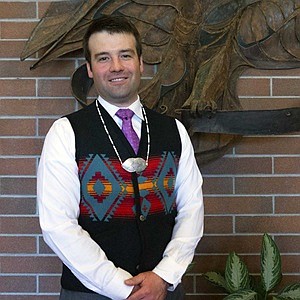Milestone decision upholds claim to Native land
Tribes can feel ‘cautiously optimistic’ about Supreme Court ruling
The U.S. Supreme Court ruled 5-4 Thursday that eastern Oklahoma will continue to be considered Native American land.
This decision for McGirt v. Oklahoma, authored by Justice Neil Gorsuch, was made in favor of the Creek Nation's claim to the land, which covers 3 million acres of the state, including much of Tulsa, Oklahoma's second-largest city.
"I think it's a pretty great decision," Dylan Hedden-Nicely, associate professor of law and head of the University of Idaho's College of Law's Native American Law Program, said Thursday.
He said this ruling is consistent with foundational principles of federal Indian law.
"In that regard, the court didn't lay out any new legal principles that weren't already established," said Hedden-Nicely, who is a citizen of the Cherokee Nation of Oklahoma. "What is impressive beyond the facts of the case is, for the last 30 or 40 years, the Supreme Court has been pretty hostile to tribal treaty rights and issues related to Native American law."
The decision came about following an appeal by Jimcy McGirt, an enrolled member of the Seminole Nation, who claimed his state rape conviction from 1997 should be overturned because Oklahoma lacked jurisdiction as the crimes took place on the Creek Reservation, land that was established by treaty in the 1800s. His lawyer, Ian Gershengorn, claimed Congress never properly terminated the reservation.
According to the Major Crimes Act, within “Indian country,” tribal members who commit certain enumerated offenses shall be subject to the same law and penalties as all other persons committing offenses, within the exclusive jurisdiction of the United States.” “Indian country” includes “all land within the limits of any Indian reservation under the jurisdiction of the United States Government."
The Supreme Court upheld that these lands belong to the Creek Nation, and therefore crimes committed upon them by tribal members are within federal, not state, jurisdiction, so Oklahoma should not have conducted the proceedings. McGirt could now be retried in federal court.
“Coming back to this consistency, although the state of Oklahoma doesn't appreciate it. It makes it easier for people to understand the lay of the law, which is more important than the facts that may be present in a particular case," Hedden-Nicely said. "I think tribes have a reason to be cautiously optimistic about the current policies of the U.S. Supreme Court, that if necessary, if they need to call upon the Supreme Court for recourse, they can feel cautiously optimistic that the Supreme Court will respect their rights and the promises the United States made to tribes."
He said what this means locally for tribes and their non-Native neighbors "is the Supreme Court has maintained the status quo."
"The Coeur d'Alene Tribe can feel confident based on this case, and other tribes — Spokane, Nez Perce — that this case reaffirms their reservations continue to exist," he said. "It doesn’t change who owns land within the reservation; the Creek Nation didn't acquire land. It’s about jurisdictional boundaries and whether those boundaries continue to exist or not."
He said it's important to reassure people, in North Idaho and everywhere, that this ruling doesn't change land ownership and doesn't change state authority over non-tribal members.
"For people not a part of a tribe, it doesn't change anything," Hedden-Nicely said. "All it does is reaffirms the promises the United States made in the early 1800s to the Creek Nation and the other four tribes by extension that they need to be honored. Nobody in Idaho, no non-tribal member in Idaho, is going to be adversely affected by this decision."
He said tribes can now feel they have a Supreme Court that is more supportive than in the past.
"Tribes can feel cautiously optimistic that their rights are going to be protected by the judiciary, moving forward," he said.

